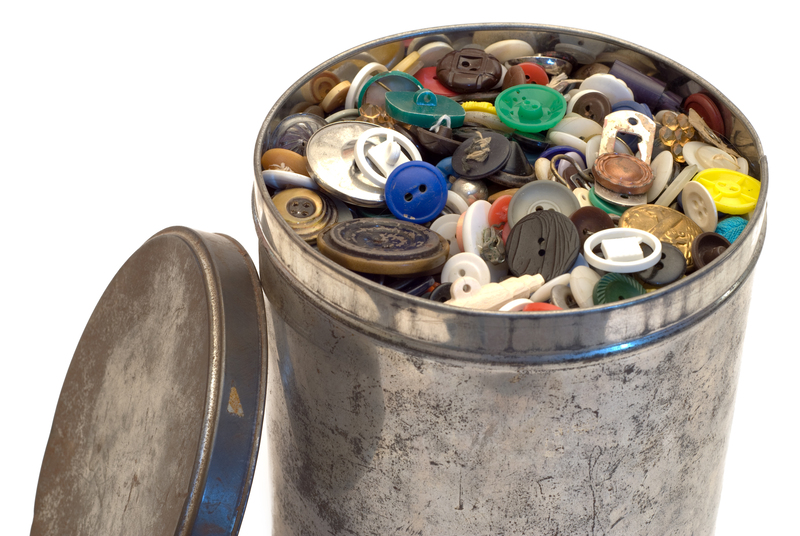Strengthen Recycling Efforts for a Sustainable Office: A Comprehensive Guide
The modern workplace is transforming, prioritizing eco-friendliness and sustainability. A truly sustainable office embodies a holistic dedication to reducing waste, conserving resources, and continuously improving recycling strategies. In this article, we'll explore actionable approaches to strengthen recycling efforts for a sustainable office, ensuring your organization's operations are both environmentally responsible and future-ready.

Why Office Recycling Initiatives Matter
Recycling is more than a trend--it's a necessity. Offices generate significant amounts of waste, from paper and cardboard to electronics and plastics. Without robust recycling solutions, these materials often end up in landfills, contributing to an array of environmental challenges such as pollution, greenhouse gas emissions, and resource depletion. Strengthening recycling efforts in your workplace creates a ripple effect, inspiring employees, clients, and other stakeholders to embrace sustainable habits.
- Reduces environmental impact: Recycling limits the extraction of virgin materials and abates landfill overflow.
- Boosts corporate image: Customers and partners value environmentally conscious businesses.
- Complies with regulations: Many cities and countries have strict waste management guidelines for businesses.
- Improves employee morale: Sustainable practices often lead to increased engagement and pride among staff.
Assessing Your Office's Current Recycling Practices
Before you can strengthen recycling efforts for a sustainable office, it's critical to evaluate your current situation. Conducting a comprehensive waste audit provides insights into:
- The types and quantities of waste your office generates
- Existing recycling streams and what's actually being recycled
- Inefficiencies or gaps in the current system
- Employee awareness and participation levels
Pro tip: Get your office "green team" or sustainability committee involved for a thorough audit, and consider enlisting the help of a professional waste management consultant.
Step-by-Step Waste Audit Process
- Collect waste and recycling data for at least one week.
- Sort materials into categories: paper, cardboard, plastics, electronics, organics, etc.
- Weigh or estimate the volume of each category.
- Analyze contamination rates in recycling bins.
- Identify sources of non-recyclable waste.
How to Strengthen Recycling Efforts in the Office
With a clear understanding of your office's waste profile, you can implement powerful strategies to improve recycling and move towards a sustainable workplace.
1. Improve Bin Placement and Signage
Accessibility and clear communication are critical. Place recycling bins in high-traffic areas such as next to printers, break rooms, and entrances. Label all bins with large, color-coded signs that visually indicate what materials are accepted. Consider using iconography and multi-lingual signage for added clarity.
- Pair recycling bins with landfill/trash bins to avoid "wishcycling."
- Use transparent bins for increased visibility and accountability.
- Regularly update signage to reflect changes in recycling streams.
2. Offer Single-Stream and Specialty Recycling
Many offices benefit from single-stream recycling, where all recyclables are collected together and later sorted. However, you may need specialty bins for:
- Electronics and batteries (e-waste)
- Ink cartridges and toner
- Food scraps and compostables
- Plastic film and bags
Work with your local waste management provider to determine which materials are accepted and how to properly collect them. This ensures your recycling efforts are both effective and compliant.
3. Educate and Engage Employees
Sustainable office recycling relies heavily on employee participation and buy-in. Launch educational campaigns that focus on the benefits and proper methods of recycling:
- Offer training sessions and workshops.
- Distribute recycling guides and cheat sheets.
- Send monthly newsletters with recycling tips and updates.
- Host office "green challenges" and reward top performing teams.
Employee engagement is the backbone of any successful recycling program--cultivating a culture of sustainability inspires long-term change and strengthens recycling efforts for a green office.
4. Go Digital and Minimize Paper Use
Reducing waste at the source is as important as recycling. Encourage your team to:
- Adopt digital tools for note-taking and collaboration.
- Switch to electronic invoicing and record-keeping.
- Default to double-sided printing and set print quotas.
- Recycle used paper and securely shred sensitive documents before recycling.
Digitizing workflows not only lowers paper consumption, it boosts office efficiency as well. Less waste means more impactful recycling streams and a more sustainable office.
5. Switch to Recycled and Eco-Friendly Products
Procure office supplies and equipment made from recycled or renewable materials. This creates a circular economy within your workplace, where products are reused and recycled as much as possible.
- Buy recycled-content printer paper and envelopes.
- Source biodegradable cleaning products and office supplies.
- Choose refillable pens, markers, and toner cartridges.
- Encourage suppliers to use minimal or recyclable packaging.
6. Work with Green Vendors and Partners
Strengthening recycling efforts for a sustainable office isn't limited to in-house actions. Collaborate with service providers who share your commitment to environmental responsibility:
- Hire waste haulers and recyclers with certified sustainable practices.
- Partner with local charities for donating old electronics or furniture.
- Choose catering services with compostable packaging.
- Ask suppliers about take-back and recycling programs for their products.
Measuring and Improving Your Office Recycling Program
Implementing strategies is one thing; tracking progress and making continuous improvements will maximize your office's recycling potential.
Metrics to Monitor
- Percentage of total waste diverted from landfill
- Employee participation rates
- Volume of materials recycled (by category)
- Cost savings from reduced waste disposal fees
- Incidence of recycling contamination
Set SMART goals (Specific, Measurable, Achievable, Relevant, Time-bound) for your sustainability initiatives, and review them quarterly or annually. Communicate successes--big or small--to motivate ongoing participation and maintain momentum.
Expanding the Scope: Advanced Sustainable Practices
- Composting: Initiate an office composting program for food scraps, coffee grounds, and compostable disposables. This further reduces landfill waste and can even generate nutrient-rich soil for office plants or local gardens.
- E-waste drives: Organize periodic technology recycling events to responsibly dispose of old hardware, cables, and batteries.
- Zero-waste challenges: Set an ambitious goal to achieve zero landfill waste for a week or month, tracking all materials and innovating new collection methods.
- Green certifications: Pursue certifications such as LEED, BREEAM, or ENERGY STAR to formalize your office as a leader in sustainability and recycling efforts.
Creating a Circular Office Economy
Think beyond traditional recycling. A circular office economy keeps valuable materials in use as long as possible by:
- Encouraging the reuse of envelopes and folders
- Setting up office supply swaps or donation programs
- Repairing equipment before replacing it
- Purchasing refurbished electronics and furniture
This approach reduces demand for new raw materials and enhances the environmental impact of your sustainability initiatives.
Overcoming Common Recycling Challenges in Offices
Even the best recycling programs face obstacles. Here's how to address some of the most common challenges:
- Contamination: Offer regular employee education and clear signage. Remove lids, rinse containers, and avoid bagging recyclables unless required.
- Space constraints: Use stackable bins or wall-mounted containers in small offices. Coordinate with building management for shared recycling hubs.
- Lack of participation: Provide incentives, recognize recycling champions, and make participation easy and intuitive.
- Regional restrictions: Stay updated on local recycling guidelines, and adapt your collection methods as rules evolve.

The Benefits of Robust Office Recycling Programs
Investing in office recycling has far-reaching positive effects--on the environment, your workforce, and your bottom line.
- Environmental preservation: Fewer raw materials are extracted, and less energy is consumed compared with creating products from scratch.
- Reduced costs: Recycling can lower your office's waste hauling and landfill fees.
- Employee engagement: Team members feel empowered by contributing to a larger cause.
- Enhanced reputation: Prospects and clients respect organizations that lead in sustainability.
- Regulatory compliance: Meeting (or exceeding) local recycling requirements prevents fines and legal issues.
Conclusion: Embark on the Path to a Greener Office Today
Strengthen recycling efforts for a sustainable office--it's a mission every business can achieve with the right planning, employee participation, and ongoing optimization. From baseline audits and bin placement to education, supplier partnerships, and advanced initiatives like composting, each action step brings measurable results. Not only do these efforts minimize your organization's environmental footprint, but they also foster a culture of responsibility and innovation.
Start by evaluating your existing system, engage your team, and set clear, achievable recycling goals. Soon, your office will be known not just for productivity--but for making a real difference in the journey toward a more sustainable future. The planet, your colleagues, and the broader community will thank you!
```